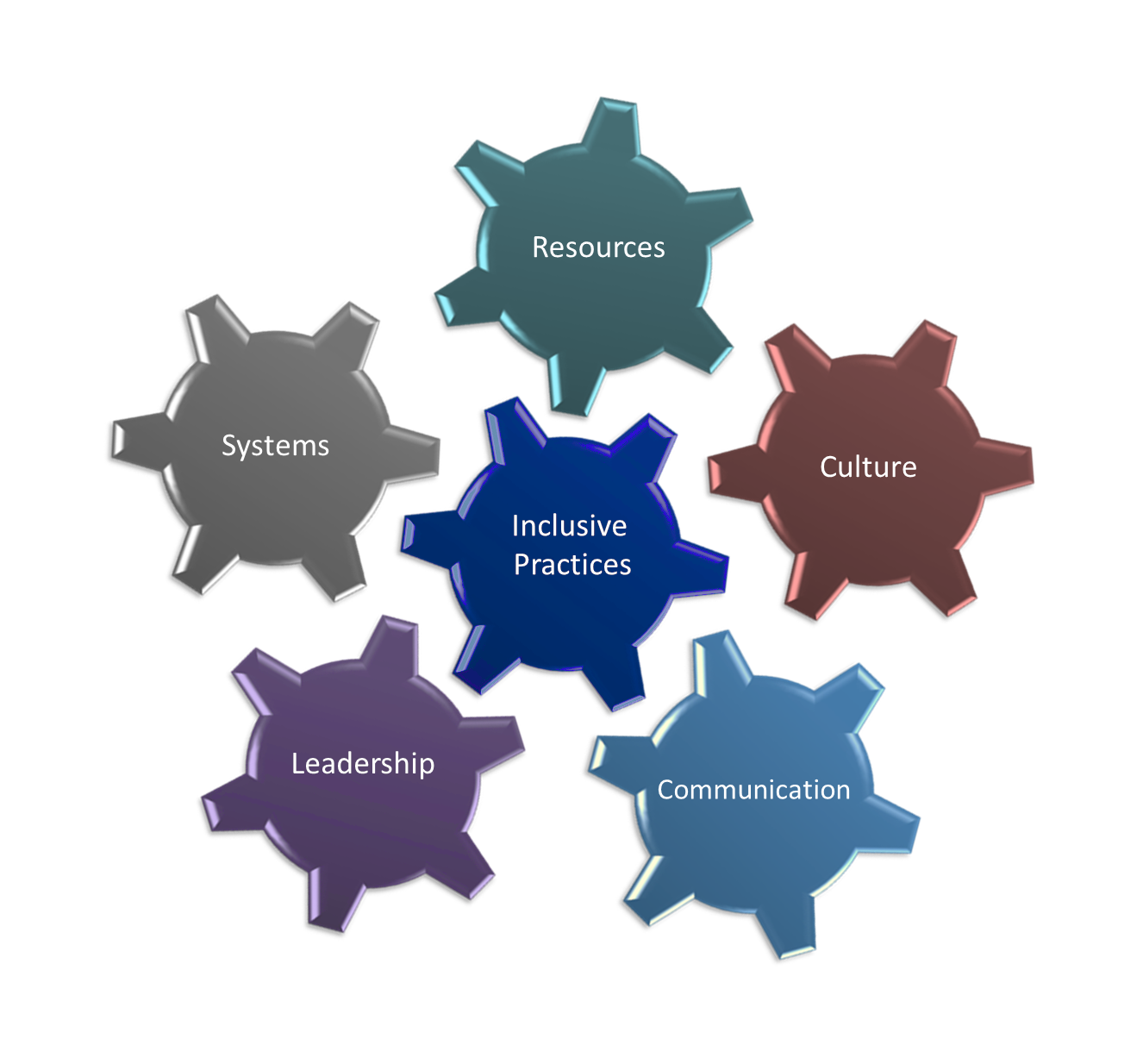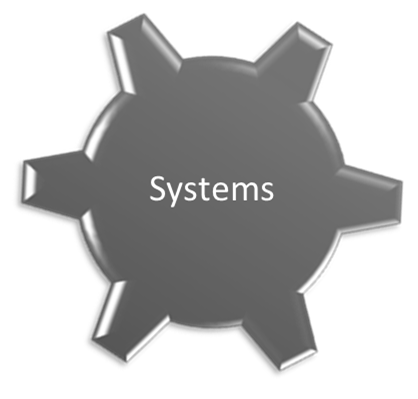Inclusive Practices Toolkit
Listed below are five components that might be considered when developing inclusive practices. Under each component are ideas that can be helpful to consider when looking through the Quick Links resources. Please note that all five components do not need to be implemented simultaneously to get started with inclusive practices.
As you explore your district, school, or classroom communications systems, here are a few ideas to help spark your thinking:
Ways to “PLAN” your communications: plan a roll out, create a marketing plan, create and review timelines, involve all stakeholders throughout the process, use and share research to verify and promote sound practices, provide opportunities for open discussion, establish methods for feedback from all, review your hiring process, and determine if additional information is needed on the types of staff to recruit
Consider “HOW” to communicate: use your district website, share videos, participate in community outreach, involve parent groups, share information during meetings (staff, grade level, department, school board), and create newsletters (district, school, teacher)
Ensure "AWARENESS AND VISIBILITY" with your communications: develop and use a common vision and mission, create and agree upon a common shared language, share success stories, and provide communication links to support the new communications system
As you explore your district, school, or classroom culture, here are a few ideas to help spark your thinking:
Explore the level of “COMMITMENT”: create common “commitment” language, involve teachers, parents, students, and leaders in the process from start to finish, ensure the right questions are asked during the interview process, create a mentoring and support protocol to reach culture goals
Expect "STUDENT-CENTERED" thinking and actions: identify if you have an active and productive student council, ensure students with and without disabilities are included in ALL areas of school life, share success stories, provide and reflect on parent and student surveys.
As you explore your district, school, or classroom leadership style, here are a few ideas to help spark your thinking:
Create and support a "SHIFT IN MINDSET": ensure a common language is used by ALL, establish clear accountability expectation for ALL, establish and support a culture for ALL students to meaningfully participate, expect collaboration for ALL, create an ALL-in atmosphere, provide positive disability awareness training and open discussions, share research-based benefits for ALL, create and use surveys from ALL stakeholders
Supportive and productive "EVALUATIONS": conduct frequent, meaningful, and simple classroom walk-throughs and observations, encourage teacher feedback and questions, collect and review perception data, follow through with implementation, create personal and professional development plans, ensure the understanding of expectations, and use evaluations effectively for all students and all staff.
As you explore your district, school, or classrooms resources, here are a few ideas to help spark your thinking:
Types of "PROFESSIONAL DEVELOPMENT" for ALL staff: conduct new teacher/staff orientation that emphasizes co-teaching, effective inclusive practices, classroom management, adopted curriculum, behavior management, universal design for all, accommodations and modifications, disability awareness, basic special education law, and 504 requirements
Adopted core “CURRICULUM” for ALL: train and provide access for ALL teachers at their grade level, understand and create accommodations, understand and support modifications, support universal design for learning (UDL), expect differentiation, ensure access to core materials, manuals, and training for ALL
Create district-wide “DATA collection and usage procedures: have a data use framework, design and provide assessment usage expectations, collect and analyze data to drive instructional decisions for ALL students, frequently disaggregate data to determine needs, use walk-through data as a reference point, create dynamic and flexible groupings of students based on data, use data to task analyze and break down skills, determine and map frequency of data collection, support interventions and enrichment activities based on data.
As you explore your district, school or classroom systems, here are a few ideas to help spark your thinking:
Research and make plans about the “STRUCTURAL” settings: explore, reserve and develop classroom space and/or building space, ensure that the Americans with Disabilities Act (ADA) requirements are up-to-date in all areas and ensure accessibility for ALL students
Consider the “FUNCTIONALITY” of your systems: develop a master schedule that allows for co-planning and co-teaching, supports the importance of instructional time and teaching practices, and supports professional development of ALL staff, implement a multi-tiered system of support/intervention, conduct fidelity/integrity checks, and solicit input from leadership teams
Ensure “SERVICES”: First and foremost EVERY LEA (local education agency) must provide a continuum of services for students with disabilities. Support of these systems may include supporting staff with coaching, professional learning communities, and providing training in facilitated IEP meetings, student centered planning, universal design for learning (UDL), special education evaluation process, specially designed instruction and inclusive practices.
The following resources are located on websites not owned or operated by ADE. These links do not imply an endorsement of the materials; however, every effort has been made to ensure that the resources provided herein are accurate and timely.
Inclusive Practices Contact Information
Autism and Low Incidence Specialist
(602) 542-3209
Page revised 5/13/22













